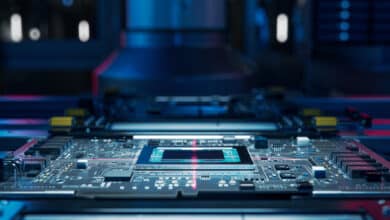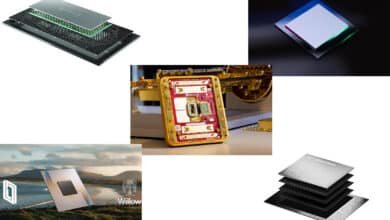All Quantum Computing Posts
-
Quantum Computing
Quantum Programming: An In-Depth Introduction and Framework Comparison
Quantum programming is an emerging discipline that challenges developers to think beyond classical bits and deterministic algorithms. Instead of manipulating binary 0s and 1s, quantum programmers work with qubits that can exist in multiple states at once and harness phenomena like superposition and entanglement to perform computations in fundamentally new ways. Quantum programming demands a shift in thinking: information is encoded in probability amplitudes, operations…
Read More » -
Quantum Computing
How Quantum Could Break Through Amdahl’s Law and Computing’s Limits
Amdahl’s Law teaches us a humbling lesson about the limits of classical computing: there is always a portion that resists parallel speedup, chaining us to diminishing returns. We’ve coped by clever engineering – making that chain as short as possible – but not broken it. Quantum computing offers a bolt cutter for certain chains, freeing us from some of the constraints that have started to…
Read More » -
Quantum Computing
Quantum Technologies and Quantum Computing in South Korea
South Korea’s quantum technology ecosystem has rapidly matured from obscurity into a well-organized force. Backed by a clear national strategy and increasing investments, Korea is making its mark through cutting-edge research at top universities, substantial government support for quantum computing and communications, and active participation from industry giants and startups alike. The country’s balanced focus – on quantum computing platforms, quantum-safe communications (QKD and PQC),…
Read More » -
Quantum Computing
Quantum Technologies and Quantum Computing in the Middle East
Leaders in the Middle East are talking about quantum algorithms and national quantum computing hubs. And even about Quantum AI. The Middle East is determined not to miss out on the quantum revolution, and that determination is reshaping the tech narrative of this region. What’s behind this quantum push in the Middle East? Two key factors stand out: wealth from natural resources and a need…
Read More » -
Quantum Computing
The Race Toward FTQC: Ocelot, Majorana, Willow, Heron, Zuchongzhi
Quantum computing is entering a new phase marked by five major announcements from five quantum powerhouses—Amazon Web Services (AWS), Microsoft, Google, IBM, and Zuchongzhi—all in the last 4 months. Are these just hype-fueled announcements, or do they mark real progress toward useful, large-scale, fault-tolerant quantum computing—and perhaps signal an accelerated timeline for “Q-Day”? Personally, I'm bullish about these announcements. Each of these reveals a different and…
Read More » -
Quantum Computing
Quantum Geopolitics: The Global Race for Quantum Computing
Quantum computing has emerged as a new frontier of great-power competition in the 21st century. Nations around the world view advanced quantum technologies as strategic assets—keys to future economic prowess, military strength, and technological sovereignty. Governments have already poured over $40 billion into quantum research and development globally, launching national initiatives and international collaborations to secure a lead in this critical domain.
Read More » -
Quantum Computing
Quantum Use Cases in Telecom
Quantum computing’s impact on global telecommunications will be transformative. It holds the potential to revolutionize how we secure and operate networks, enabling levels of performance and protection previously unattainable. At the same time, it forces a reckoning with the vulnerabilities of our current systems. The journey to fully realize quantum-enhanced telecom will involve overcoming technical challenges and managing risks, but the destination – a world…
Read More » -
Quantum Computing
Quantum of Flapdoodle: A Guide to Quantum Hype and Scams
The gap between the hard reality of quantum engineering and the sensational way it’s often portrayed has created a fertile breeding ground for misinformation and fraud. It ranges from innocuous exaggeration, to willful marketing spin, to serious financial scams and wild pseudoscience. Think of it as a “know your enemy” for quantum professionals: if you can spot these patterns, you’re less likely to fall for…
Read More »







